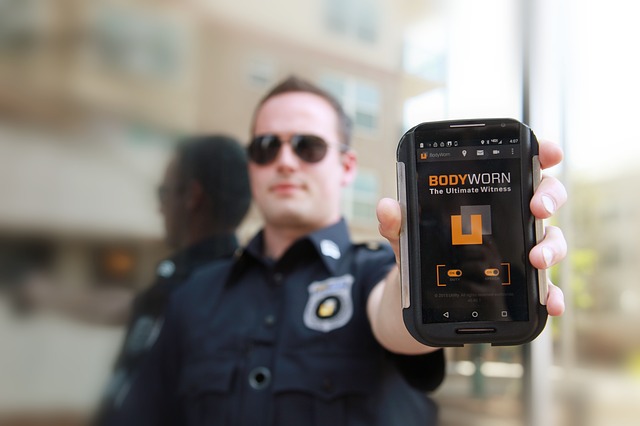
What is the right way to treat the sensitive information collected by an officer’s body camera?
When an old woman falls in the bathtub and can’t get up, she may be able to call 911 for help and have officers and paramedics rush to help her. But what happens to the police body cam video of that incident? Should it be shielded from public view because it contains personal, sensitive imagery that the victim wouldn’t want available for public viewing? Or does the right to freedom of information trump that? This is a very sensitive issue, and one that is currently causing a great deal of controversy in Michigan as we work towards deciding how police officer’s body cam footage should be handled.
A recent bill passed by our Michigan House of Representatives would require that all Michigan police departments have written policies governing how they would handle the records gained from officer’s body cameras. The bill, if passed into law, would also shield certain types of footage from being publicly shared under the Freedom of Information Act.
House Bill 4427 is sponsored by House Representative Jim Runestad. He says that Michigan police departments have almost no rules in place for how officers are meant to handle body camera videos. This bill, he hopes, will change that by clearly outlining how this type of footage is to be dealt with.
In a statement made about his support of the legislation, Rep. Runestad said, “Body cameras assist law enforcement officers in their daily operations, while increasing the public’s trust in officers and serving as a deterrent for violence against an officer. These guidelines give law enforcement agencies the tools they need to implement effective body-worn camera programs, while also ensuring that the people of Michigan can have confidence in those programs.”
But is keeping the information shielded from the public the right answer?
Not everyone is as happy as Rep. Runestad, however. The Michigan Press Association (MPA) is firmly opposed to the proposed law. According to Lisa McGraw, public affairs manager for the MPA, body camera footage should be made available to the public so that the behavior of officers can be managed. In the event of an officer overstepping their bounds, the information should be readily accessible to all interested parties.
The reason behind the MPA’s concern is that the exemptions that the bill protects would be otherwise available to the public courtesy of the Freedom of Information Act. In other words, it would make certain types of footage, and records taken in certain situations, unavailable to the press. This is called the ‘private setting exemption’ which, when combined with the existing disclosure exemptions, puts significant limitations on what body cam footage can be viewed by the public.
However, despite drawing ire from the press, there were a number of organizations that supported the bill. Those included the Michigan State Police, the Oakland County Sheriff’s Office, the Fraternal Order of Police, the American Civil Liberties Union of Michigan, and the Michigan Coalition to End Domestic and Sexual Violence.
HB 4427 was passed unanimously by the House, and has now moved to the Michigan Senate for consideration. Because this is an issue that may directly affect a number of our clients in the future, we will be keeping a close eye on this bill and will keep you updated. Until then, if you or a family member or loved one have been arrested or charged with a crime in Michigan’s lower peninsula, call us immediately at 866 766 5245. Our highly skilled defense attorneys have decades of experience protecting people.





